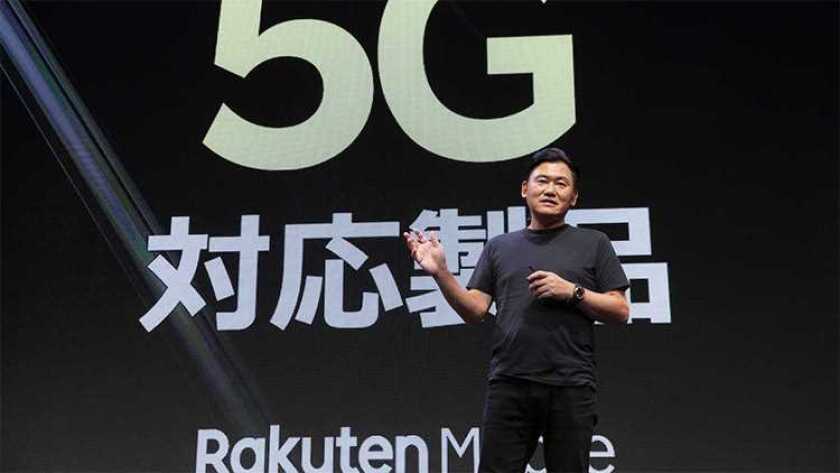Rakuten has been able to build the network quickly by using virtualised techniques, said CEO Mickey Mikitani (pictured) as a press conference.
“Less than six months since full-scale commercial launch of the world’s first fully virtualised mobile network, today Rakuten Mobile takes another step forward to transform the mobile industry: we’re offering customers 4G and 5G combined in one simple plan – Rakuten Un-Limit V – at the same low price as 4G,” said Mikitani.
UK based commentator Dean Bubley commented that Rakuten is following India’s Reliance Jio in undercutting incumbent mobile operators “with a greenfield/low-cost infrastructure and lightweight organisation”.
He warned: “If I was a legacy MNO elsewhere in the world, I’d be nervously looking at my strategy team (and advisors) right now. What happens when Rakuten pitches its platform internationally? Could it directly enter our [the UK] market?”
Rakuten will charge 2,980 yen (US$28) a month for unlimited data services on 4G/5G, less than half what is charged by NTT DoCoMo, KDDI and SoftBank. (See also our story today about DoCoMo being pushed to offer lower prices.)
Rakuten is owned by a large Japanese chain but it is taking some of its thinking from Jio – and some of its senior staff, including CTO Tareq Amin, who previously held a similar role in the Indian company.
He said: “After our successful 4G launch in April 2020, I’m very proud to launch our 5G network today. The learnings from launching 4G on the world’s first fully virtualised, cloud-native mobile network enabled us to further enhance our underlying stack.”
Mikitani also announced an entirely new 5G-compatible device from Rakuten Mobile, hinting at more to come in the future. “Our network technology is built to meet the ever-evolving needs of our customers – and with transformational innovation, we are passing on significant savings to our customers,” he said.
“As we move forward to expand 4G and 5G coverage, we aim to reduce the household cost of mobile services. This is also about encouraging consumer spending across other services and goods, contributing to the sustainable health of Japan’s national economy.”
Rakuten Mobile said it has made it a priority to do away with complex terms and conditions, offering a single service plan “that is simple, intuitive and easy-to-understand for all customers, whether they are in Japan or travelling internationally”.
The plan – called Rakuten Un-Limit 2.0 – was launched in April 2020 and it offers subscribers unlimited data when connected to the Rakuten Mobile network, and unlimited calls through its communications app Rakuten Link.
Rakuten Mobile president Yoshihisa Yamada said: “The mobile plans of other operators are incredibly complicated. You have your family discounts, as well as all sorts of bundles with other services. We took the opposite approach and decided to keep it really simple. And we’re continuing to do that with our 5G plan.”
CMO Naho Kono said: “Customers are particularly happy with the simplicity of our plan, the cost performance, the single fee for unlimited data and the speed it delivers… We wanted to revolutionise smartphone fees in Japan. That’s what we had in mind when we launched our full-scale mobile carrier service in April.”
Bubley observed that Rakuten has a “simple consumer-centric plan” and added: “It reckons it's 70% cheaper than rivals.”
He observed that there is “no mention of enterprise, verticals, Industry 4.0 etc. [It’s] all about entertainment a ‘experience’, with XR, gaming and streaming.”
Rakuten will offer an initial 870Mbps, with plans to upgrade to 2Gps in a few months, noted Bubley. It is working with NEC, Intel and Qualcomm as technology vendors.
Rakuten started 5G services yesterday in parts of Tokyo, Kanagawa, Saitama, Hokkaido, Osaka and Hyogo Prefectures.
Amin said: “The open and virtualised RAN [radio access network] in our 5G network is now fully containerised. This innovation brings cloud-stack from theory to practice.”
He said Rakuten has deployed “the world’s first” massive MIMO [multiple input multiple output] radio units in the millimetre wave band at 28GHz and at 3.7GHz, “and all the 5G RAN workloads are running on the same containerised software stack for open and virtualised RAN”.






